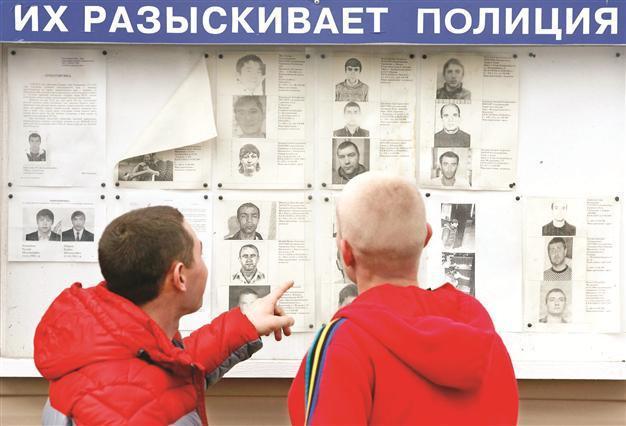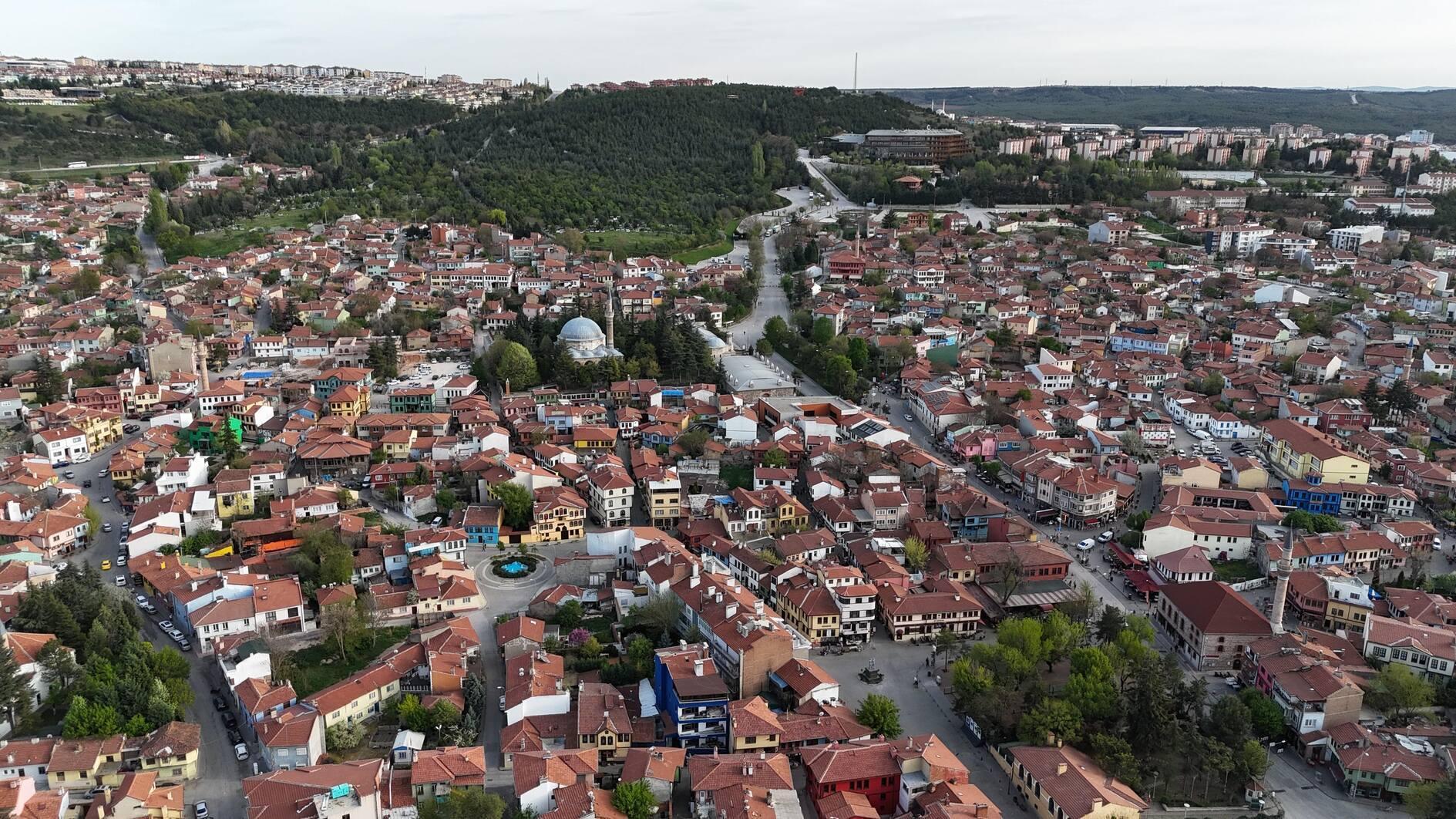Russia’s black widows raise security concerns
MOSCOW

People stand in front of a board with mugshots of wanted people in the Adler district of Sochi. Police have killed a senior militant in North Caucasus, where security forces searched for a woman they fear is planning an attack during Sochi. REUTERS photo
The search for three women suspected of planning terrorist attacks at the 2014 Sochi Winter Olympics has raised one of Russia’s most feared specters, the female suicide bombers known as “black widows.”For more than a decade, women have committed many of Russia’s worst terror attacks, downing airliners, blowing up subway cars and killing people going to a rock concert.
The term “black widow” refers to the belief that these women took the desperate step of becoming suicide bombers in order to avenge husbands or male relatives killed in Russia’s long fight against Islamic militants in the Caucasus region.
Russian police leaflets circulating in the Olympic host city of Sochi say that one of the women suspected of planning an attack at the Winter Olympics is the widow of a militant. But there have been cases where the bombers’ husbands were alive at the time of their attacks, and one failed bomber said it was shame and a lack of money that drove her to terrorism.
One of the earliest attacks to draw attention to female terrorists was the 2002 mass hostage-taking at a Moscow theater by Chechen militants, 19 of the 41 attackers were women.
The crisis ended with Russian forces pumping narcotic gas into the theater, killing all the attackers and at least 118 of the approximately 850 hostages. Police footage after the raid showed some of the women dead in theater seats with explosives attached to their bodies.
In the first wave of a shocking series of attacks in 2004, two Russian airliners were brought down with bombs on the same night, killing a total of 79 people.
Authorities said both of the bombers were women, and one had a brother who had disappeared in Chechnya. A week later, a female suicide bomber blew herself up outside a Moscow subway station, killing 10 people.
But authorities later said the sister instead was one of two females among a group that seized some 1,100 hostages the next day at a school in the town of Beslan. Russian forces besieged the school and at least 380 people were killed. In 2010, twin blasts on the Moscow subway that killed at least 40 people in one day were blamed on women suicide bombers.
Meanwhile, police have killed a senior Islamist militant in Russia’s North Caucasus, where security forces searched for a woman they fear is planning an attack during the games.
Putin calls Obama
Eldar Magatov, a suspect in attacks on Russian targets and alleged leader of an insurgent group in the Babyurt district of Dagestan, died in a shootout, the National Anti-Terror Committee said Jan. 21.
President Vladimir Putin had a phone call with U.S. President Barack Obama in which they discussed how best to have a “safe and secure” Winter Olympics, the White House said.
The U.S. military is making two ships in the Black Sea available should American support be required during the Olympics. Washington is also offering American technology used to thwart roadside bombs in places like Afghanistan to boost security during the Olympics, a spokesman for U.S Joint Chiefs of Staff Chairman Martin Dempsey said.
















